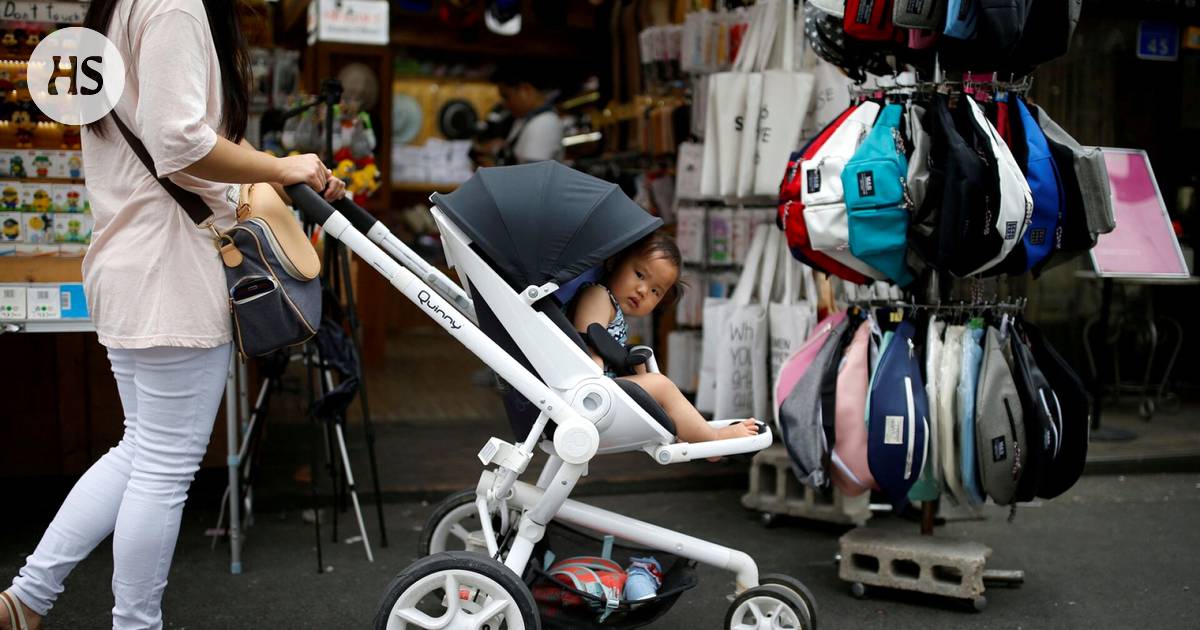South Korea’s birth rate is the lowest in the world. The country’s companies are aware that they have a role to play in solving the problem.
Low birth rate to speak again in Finland. The population crisis threatening South Korea, the country with the lowest birth rate in the world, has been worrying for years.
The country’s political decision-makers and companies have come up with various incentives to improve the birth rate.
One of the most special incentives is from the South Korean construction specialist Booyoung Group. It is offered by a British magazine of the Financial Times (FT) gives its employees a bonus of almost 70,000 euros for each baby the employee receives.
“If Korea’s total fertility rate remains low, the country will face extinction,” said Booyoung’s board chairman Lee Joong-keun to the company’s personnel, according to FT last week.
in South Korea parliamentary elections will be held next month. According to FT, many candidates, regardless of party affiliation, have proposed various new incentives for potential parents of a baby.
The proposals have included more generous housing allowances and tax breaks, as well as mandatory paternity leave, but also more special incentives, such as subsidies for egg freezing programs.
The population crisis not only threatens South Korea, but the baby boom is already changing society. Due to the reduction of the age groups, the number of personnel of the South Korean Defense Forces in 2022 exceptionally fell to less than 500,000 people.
Universities and schools have also reported declining student numbers, and daycare centers have had to be turned into nursing homes. Last year, more strollers for pets were sold in the country than for babies, FT says.
Listed the consequences are examples of the situation when South Korea’s fertility rate was 1.2. Now the number is already much lower. So the situation is getting worse, says a researcher at the Korea Development Institute Choi Seul-gi FT:lle.
South Korea’s total fertility rate fell to 0.71 last year from 0.78 the previous year. Officials predict it will drop to 0.68 this year.
The figure measures how many children women give birth to on average in their lifetime. According to the estimate of the Organization for Economic Cooperation and Development (OECD), the natural renewal of the population would require 2.1 children per woman.
In Finland, the fertility rate was 1.32 in 2022. It was in Matali’s measurement history that started in 1776.
”
In South Korea, more strollers for pets were sold than for babies last year.
Osa South Korean companies are worried about the situation. According to the country’s chamber of commerce, companies are aware that they have a role to play in solving the fertility problem.
The companies are trying to improve the corporate culture and increase the balance between work and free time so that it would be easier for employees to both go to work and raise children.
For example, the retail chain Lotte has managed to increase the fertility rate of its employees by more than two since the company introduced mandatory maternity and paternity leaves in 2012.
Lotte’s female employees are entitled to two years of maternity leave in addition to the three months paid by the state.
